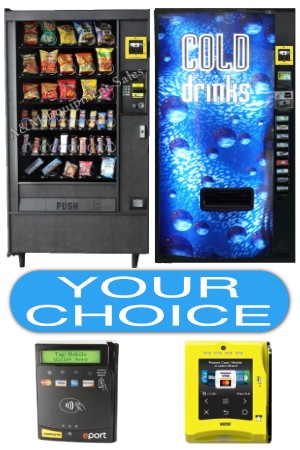How are book vending machines improving literacy rates among students?
Book vending machines are significantly improving literacy rates among students by providing free and easy access to books in schools and community centers, especially in underprivileged areas. These machines eliminate the barrier of access to reading materials, allowing children to select and own books, and fostering a love for reading. This innovative approach addresses the crucial need for resources that many low-income families lack, helping to counteract the literacy decline exacerbated by the pandemic.
Highlights
- Decline in Literacy Rates: U.S. reading and math scores have seen a significant decline, worsened by the pandemic.
- Pandemic Impact: Remote learning and school closures left many students, especially from low-income families, without adequate resources, exacerbating the literacy crisis.
- Global Concern: The OECD notes an unprecedented decline in reading and math skills among teenagers worldwide.
- Innovative Solution: Book vending machines have emerged as a promising intervention to improve literacy rates.
- Accessibility: These machines provide free access to books in schools and community centers, especially in underprivileged areas.
- Positive Impact: Book vending machines address the critical issue of access to reading materials, fostering a love for reading among children and young adults.
The challenge of enhancing literacy rates and improving reading scores among students in the United States and worldwide has become increasingly significant. In recent years, reading and math scores have witnessed a notable decline, an issue exacerbated by the pandemic’s impact on traditional education. This worrying trend underscores the urgency for innovative solutions. Among the most promising interventions to emerge in this landscape are book vending machines – an inventive approach that combines accessibility with the intrinsic joy of owning a book.
The Decline in Reading Scores: A Global Concern
Before the Pandemic
Even before the global disruption caused by COVID-19, reading scores across the U.S. were on a downward trajectory. Data revealed a concerning trend where a significant proportion of students failed to read at grade level, with the numbers worsening over several years. In rural South Carolina, for instance, educators like Andrea Yon observed a precipitous drop in reading levels among her middle school students, who went from reading below grade level to falling even further behind during the pandemic. Such instances underline the depth of America’s reading problem, necessitating urgent remedial measures.
The Pandemic’s Impact
The arrival of the pandemic exacerbated the existing challenges in literacy education. Nationwide closures and the shift to remote learning left many students, particularly those from low-income families, without adequate resources or support. This resulted in sluggish progress in reading, with consulting firm McKinsey & Company and other studies estimating substantial losses in reading instruction. This decline was not limited to the U.S.; the Organisation for Economic Cooperation and Development (OECD) noted an unprecedented decline in teenagers’ mathematics and reading skills across dozens of countries, spotlighting a global education crisis.
Innovating Literacy with Book Vending Machines
Bridging the Accessibility Gap
In response to the dire need for creative solutions to the literacy challenge, book vending machines have emerged as a beacon of hope. Often placed in schools and community centers, these machines make books freely available to children and young adults. By doing so, they address a crucial barrier to literacy – access to reading material. In many underprivileged areas, children do not have books at home nor easy access to public libraries. Book vending machines fill this void by ensuring that every child has the opportunity to own a book, regardless of their socioeconomic status.
Encouraging a Culture of Reading
Building Excitement Around Books
The novel concept of obtaining a book from a vending machine adds an element of excitement and novelty, which can be particularly engaging for young readers. It’s a unique experience that transforms the act of selecting a book into a memorable event, thereby fostering a positive association with reading. This excitement is crucial in reinstating the habit and love of reading, especially among students who have drifted away from books during the pandemic.
Tailoring to Diverse Interests
One of the strengths of book vending machines is their ability to offer a wide range of reading materials catering to various interests and reading levels. This variety ensures that every child can find a book that speaks to their curiosity, further promoting a genuine love for reading. By offering choices, these machines empower students to take ownership of their reading journey, a critical step in building lifelong readers.
A Turning Point in Literacy Initiatives
The Role of Schools and Communities
The implementation of book vending machines represents a collective effort between schools, communities, and various stakeholders to address the literacy crisis. For these machines to achieve their maximum impact, they must be stocked with an ever-evolving collection of books that reflect the diverse interests and needs of their users. Furthermore, their placement should be strategic, ensuring accessibility to all students, especially those in remote or underprivileged areas.
Looking Forward
As promising as book vending machines are, they are but one piece in the complex puzzle of literacy education. Their success underscores the need for comprehensive strategies that also include teacher training, parental involvement, and digital literacy initiatives. Together, these efforts can create a holistic approach to reversing the decline in reading scores and building a more literate, informed, and engaged society.
Conclusion
The decline in reading and math scores, exacerbated by the pandemic, calls for urgent and creative solutions. By providing free and easy access to books, book vending machines represent an innovative step toward rekindling the love for reading among students. These machines not only make reading more accessible but also more exciting, potentially turning the page on declining literacy rates. As communities and educators rally around these initiatives, there’s renewed hope for future generations of readers poised to explore the world through the pages of their newfound books.
The AMS Book Vending Machine
In conclusion, the journey to combat declining reading scores is a challenging yet critical endeavor. Innovations like the AMS Book Vending Machine represent a novel approach to instilling a love of reading among students. With its capability to dispense a variety of book sizes, the use of tokens to reward educational achievements, and compliance with ADA and Energy Star standards, this vending machine is a comprehensive tool for academic institutions and literacy programs aiming to nurture a culture of reading. By integrating such pioneering solutions into our efforts, we’re not just turning the page on declining literacy rates; we’re rewriting the future of education for the better. Let’s embrace these opportunities to make reading accessible and exciting for learners of all ages.




